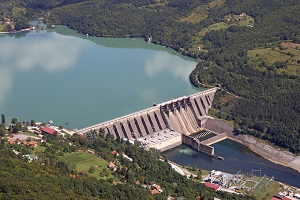
Transboundary River Basin Definition. As activities in river basins often affect their deltas 26 deltas have also been assessed. There are 63 transboundary river basins in Africa covering 64 per cent of the continents land area UNEP 2010. Perhaps the biggest problem in sharing water in a transboundary river basin is its sheer scale and the complexity of system interactions over large distances upstream and downstream. Benefit-sharing arrangements must be collaboratively developed to be perceived not only as efficient but also as equitable in order to be considered acceptable to all riparian countries.

Worldwide there are 263 international transboundary river basins with 59 of these in Africa and fi ve in Kenya UNU 2006. Salween transboundary river basin GEOGRAPHY CLIMATE AND POPULATION Geography The basin of the Salween river also known as Nu river in China and Thanlwin river in Myanmar is a transboundary basin with a total area of 320 000 km2 distributed between China 53 percent Myanmar 42 percent and Thailand 5 percent Table 1. Transboundary waters Nile River Basin Effective governance Nile Basin Initiative Negotiation and development abstract Transboundary waters face a multiplicity of governance chal-lenges. Transboundary water resource management helps promote dialogue among peoples and develop common interests between basin states. Systematically the Mekong basin is characterized by the following problem structure which ranks transboundary river basin settings according to their susceptibility to cooperation with a common-pool situation in a homogenous atmosphere being the closest to cooperation and an upstream-downstream situation in a heterogeneous actor set the closest to conflict or unilateral development. In an era of increasing water stress how we manage these critical resources is vital to promoting peaceful cooperation and sustainable development.
Transboundary waters Nile River Basin Effective governance Nile Basin Initiative Negotiation and development abstract Transboundary waters face a multiplicity of governance chal-lenges.
The equitable sharing of benefits in transboundary river basins is necessary to solve disputes among riparian countries and to reach a consensus on basin-wide development and management activities. The equitable sharing of benefits in transboundary river basins is necessary to solve disputes among riparian countries and to reach a consensus on basin-wide development and management activities. 15 core indicators across five. The Transboundary River Basins Assessment is an indicator-based assessment which identifies and classifies river basins at risk from a variety of issues encourages knowledge exchange and increases awareness of the importance and state of transboundary waters. The current literature mainly describes what is meant by the term benefit sharing in the the context of transboundary river basins and discusses this from a conceptual point of view but falls. Hydropolitical drivers in the Okavango River basin.